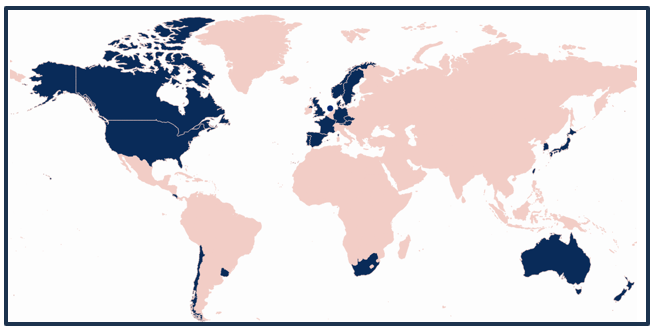The 2024 Global Elections Super Cycle highlights the significant political events taking place as national elections are conducted in 52 countries. Central to these elections is the role of information—how it is disseminated, controlled, and manipulated. Google’s extensive involvement, particularly its considerable financial support to Democratic candidates, underscores the company’s potential influence over election outcomes and the information ecosystem. Critics argue that Google’s activities demonstrate a lack of impartiality and contribute to shaping public perception and event outcomes on a global scale, raising concerns about the integrity of democratic processes.
In a broader context, growing apprehension surrounds threats to free speech, particularly in the United States, but extending globally. Figures like John Kerry have criticized the First Amendment as obstructive to effective governance, while media discourse has questioned the value and safety of the Constitution itself. High-profile figures, including Hillary Clinton and Bill Gates, have called for stricter controls on online discourse and have expressed fears regarding misinformation, emphasizing the need for censorship measures that could undermine foundational democratic values. This climate of censorship is emblematic of a larger global trend, where, across diverse democracies, freedoms of expression are increasingly subject to stringent regulations.
The push against free speech aligns with a broader, systematic decline of expressive freedoms as highlighted by various global reports. A recent study indicates that in democratic countries, the majority of actions taken regarding speech were centered on imposing restrictions rather than protection. Restrictions justified by national security concerns, public safety, the need to combat hate speech, and disinformation have been rising sharply from 2015 to 2022. This pattern is further underscored by legislative actions in numerous nations, suggesting a coordinated, multi-faceted approach by authorities to manage narrative control and public opinion.
Internationally, evidence is mounting regarding the decline of free speech. The European Union’s Digital Services Act is a case study in this trend, with significant implications for tech companies and their handling of online content. The aggressive stances taken by EU officials against alleged hate speech and disinformation signal a chilling effect on free expression and raise significant human rights concerns. Furthermore, countries like France and Germany have enacted broad bans on protests related to sensitive political issues, effectively stifling dissent and limiting the public’s ability to engage in critical discourse. Actions against artistic expression, such as canceling exhibitions, reflect a troubling environment for creative freedoms globally.
As the struggle for free speech continues, thought leaders like Jonathan Turley argue that the current era may represent one of the most perilous periods for expression in American history. Turley’s examination of free speech frames it as an essential human right foundational to democracy and societal progress, warning against the growing alliance between corporate interests, government regulation, and societal outrage that seeks to silence dissenting voices. Through historical lens, it is evident that these challenges are part of an ongoing struggle for expression, wherein pivotal moments in history have seen the rise and fall of freedoms, urging a reevaluation of values espoused in the U.S. Constitution.
In light of these pressures, the future of free speech remains uncertain, with growing support for measures such as digital identification and censorship frameworks as mechanisms for controlling the narrative. Public discourse is increasingly polarized, with some advocating for expansive speech rights while others clamor for restrictions. As the global community grapples with these complexities, the fight for free expression not only impacts individual rights but also the very foundation of democratic governance itself, raising critical questions about the balance between security, public order, and the preservation of fundamental freedoms.

